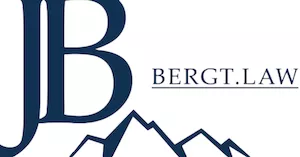Introduction
Liechtenstein's legal landscape is distinguished by its robust notarial system, which ensures the meticulous drafting, validation, and safekeeping of critical legal documents. Liechtenstein notaries are public officials vested with state authority, serving as impartial gatekeepers who guarantee the authenticity, validity, and confidentiality of the documents they notarize. Their services play a pivotal role in ensuring that high-stakes transactions, constitutional amendments of legal entities, and property dealings are conducted within a legally sound framework.
Understanding Notarial Functions in Liechtenstein
- Public Certification under Domestic Law: Notaries are empowered to provide public certification, a process required by Liechtenstein law for foundational legal documents such as the creation of new business entities or modifications to their constitutional documents. This process, conducted with the utmost adherence to local legislation, enables public trust in the documents' authenticity.
- Executable Documents: Liechtenstein notaries can also draft documents with the enforceability of court agreements, facilitating quicker enforcement without requiring a separate judicial proceeding.
- Certification of Legal Facts and Relationships: The notaries authenticate and validate critical legal facts, relationships, and representative statuses when these bear significant legal implications and protection needs.
- International Certifications: Liechtenstein's notaries can issue certifications in accordance with foreign laws if they have a comprehensive understanding of the pertinent foreign legislation. They may also take sworn or unsworn statements and witness testimonies for use in international legal matters, including pretrial depositions.
- Auxiliary Certifications: Notaries can attest to the authenticity of signatures, copies, transcripts, translations, and provide date attestations, all contributing to the transparent and lawful conduct of businesses and individuals.
International Standards and Services
Liechtenstein notaries are well-versed in meeting international standards for notarial services. For International Affairs, the Liechtenstein Government Chancellery certifies signatures of authorized signatories including the application of The Hague Apostille, which certifies documents for presentation in countries that adhere to The Hague Convention. This extends Liechtenstein's notarial reach beyond its borders, enhancing its reputation for international legal transactions.
- Over-Authentication/Supüerlegalization Mechanisms
- Apostille:
- For documents to be recognized in countries adhering to The Hague Convention of October 5, 1961, an apostille from the Government Chancellery is required. This simplified authentication process, known as an apostille, certifies the document for acceptance in all contracting states. Liechtenstein provides apostilles through the Government Chancellery for the signatures of authorized signatories of the National Administration, courts, and municipal officials.
- Superlegalization:
- In cases where the target country is not a signatory to The Hague Convention, the superlegalization process is necessary. This involves the Government Chancellery initially certifying the document, followed by additional certification from the relevant consulate. The consulate confirms the validity of the Government Chancellery's superlegalization, ensuring that the document will be accepted in the non-contracting state.
- Obtaining Superlegalization by Mail:
- The Liechtenstein Embassy in Bern facilitates superlegalization by mail, offering convenient processing for countries that require this form of authentication.
- Apostille:
An administrative fee of CHF 30 applies for each certification. Only original signatures can be certified. Copies of documents are ineligible for over-certification.
Conclusion
Liechtenstein's notarial services hold substantial legal value, offering clients comprehensive, precise, and internationally recognized certifications. Their role in providing public certification, particularly for high-stakes transactions and foundational business matters, underlines their indispensability in the legal framework of the principality. Furthermore, their aptitude in aligning domestic certifications with international requirements enables seamless cross-border legal engagements. However, clients should evaluate notarial fees and consider alternative governmental certification services to ensure cost-effectiveness while maintaining legal integrity.
Sources: Liechtenstein state administration, Liechtenstein Chamber of Notaries
Executive Summary:
- Rigorous Certification Requirements: Liechtenstein's notaries are entrusted with strict requirements for impartiality and confidentiality, ensuring the security and legitimacy of documents.
- Public Certification Mechanism: The certification process provides legal credibility, reinforcing the importance of notarial services in forming new businesses and legal entities.
- International Applicability: Liechtenstein notaries possess a global outlook, facilitating cross-border transactions and ensuring compliance with international laws.
- Flexible Fee Structure: Fees are negotiated on a case-by-case basis, ensuring fair and tailored pricing.
- Alternative Certification Providers: Other governmental bodies like the Princely Court and Department for Justice also provide certification services, which may offer cost advantages.
- Public Certification (Domestic): Required for critical documents like business incorporations and constitutional amendments.
- Executable Documents: Notarial documents enforceable without separate judicial title proceedings.
- Certification Services: Attestations for signatures, translations, transcripts, and dates.
The content of this article is intended to provide a general guide to the subject matter. Specialist advice should be sought about your specific circumstances.


